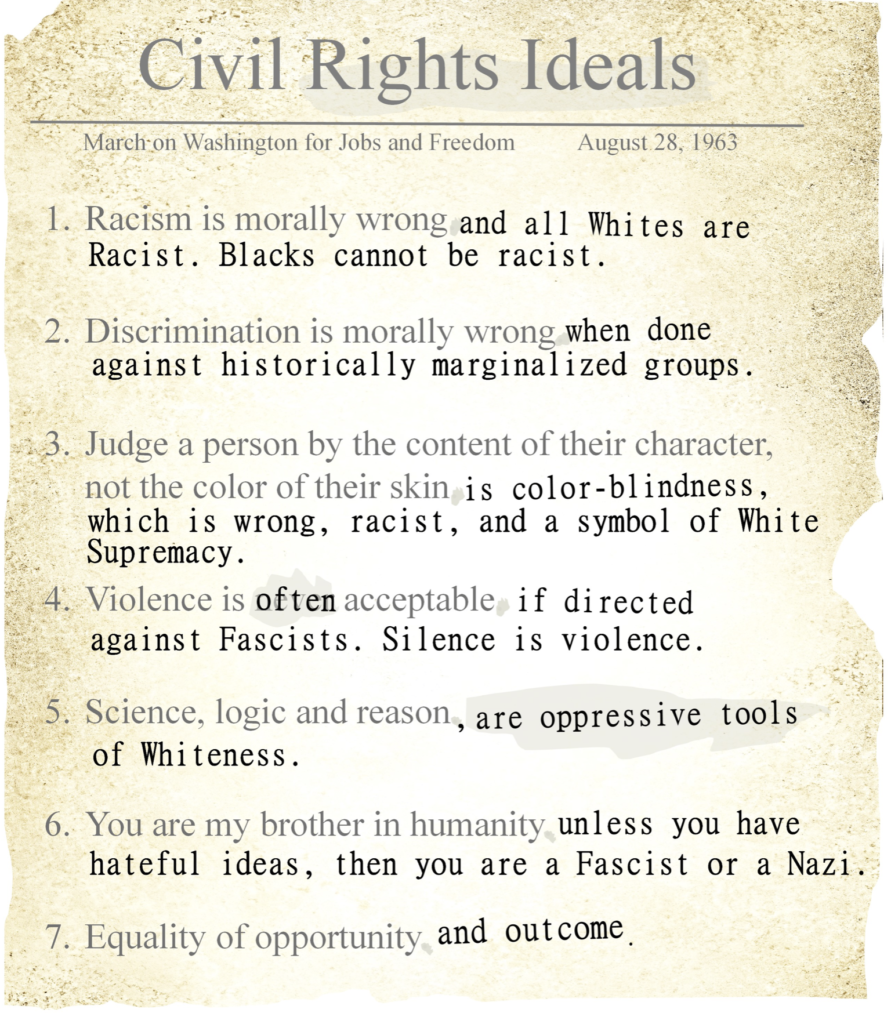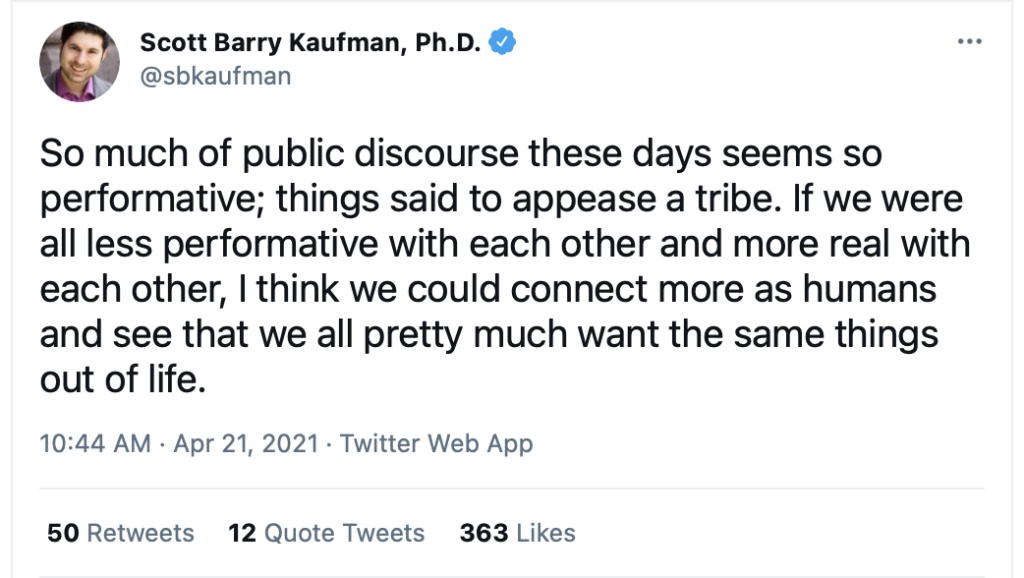Critical Race Theory claims to be the new improved way to deal with racial issues. How does the Woke doctrine, spreading through American schools and workplaces, compare to the principles of the Civil Rights Movement of the 1960's?

The creator of the above image is Woke Temple at Twitter. The "original document" above doesn't exist (I confirmed this through personal communication with "Woke Temple"), but it accurately serves as a summary of some of Martin Luther King's core teachings. The "corrections" in the graphic accurately reflect commonly espoused principles of Critical Race Theory (For more on CRT, consider the lectures and writings of prominent CRT advocates Robin DiAngelo and Ibram Kendi). See also this glossary entry for CRT at New Discourses.
It should be apparent that one cannot honor the memory and teachings of Martin Luther King and, at the same time, support Critical Race Theory. They are mutually exclusive, so each of us needs to decide where we stand on this clash of ideas.
In the early 1960s, I was a young boy. I barely watched the news back then and I didn't appreciate the importance of the civil rights movement. That said, I always knew it was a bad idea to judge each other based on the way we looked. It made deep visceral sense, as did the platitude: "Don't judge a book by its cover." Now that I'm much older, I sometimes imagine going back in time to march with Martin Luther King to make a strong show of support for the real Civil Rights Movement.
For those of us who were too young to march with MLK, 2021 is our second chance to stand up for true Civil Rights Movement. Are you willing to be called names like "racist" by a loud group of zealots in order to take this strong moral stand? That would be such a small price to pay compared to what MLK had to endure. Are you willing to allow people to call you names to help keep this country from decaying back to days where we judge each other by immutable physical characteristics like color of skin? Where millions of people obsess about what "race" someone is? To a system of categorizing each other that makes no more sense than astrology or phrenology? Again, this is your chance - - your voice is needed, and all you need to do is to say out loud those thoughts you are already thinking. Judging each other by the way we look is an outrageously dysfunctional approach to interact with each other.
The longer we don't take a strong stand against Critical Race Theory, the more entrenched CRT will become in numerous schools (grade schools and colleges and see here), media outlets and governmental offices. Here's how bad it recently got at a major national museum. See also John McWhorter's analysis: CRT is a new fundamentalist religion.
You know what is at stake. We've already set aside a national holiday in his honor. Are you ready to speak up in support of Martin Luther King?
--
Quotes of Martin Luther King that bear on the principles set forth in the "document" above:
[Don't Judge Others by the Color of their Skin]
I have a dream that my four little children will one day live in a nation where they will not be judged by the color of their skin but by the content of their character. I have a dream today.
[Violence, Hatred, Love]
Hate begets hate; violence begets violence; toughness begets a greater toughness. We must meet the forces of hate with the power of love... Our aim must never be to defeat or humiliate the white man, but to win his friendship and understanding.
The ultimate weakness of violence is that it is a descending spiral begetting the very thing it seeks to destroy, instead of diminishing evil, it multiplies it. Through violence you may murder the liar, but you cannot murder the lie, nor establish the truth. Through violence you may murder the hater, but you do not murder hate. In fact, violence merely increases hate. Returning violence for violence multiplies violence, adding deeper darkness to a night already devoid of stars. Darkness cannot drive out darkness; only light can do that. Hate cannot drive out hate; only love can do that.
[Segregation]
Now is the time to rise from the dark and desolate valley of segregation to the sunlit path of racial justice. Now is the time to lift our nation from the quicksands of racial injustice to the solid rock of brotherhood. Now is the time to make justice a reality for all of God's children
[More . . . ]


